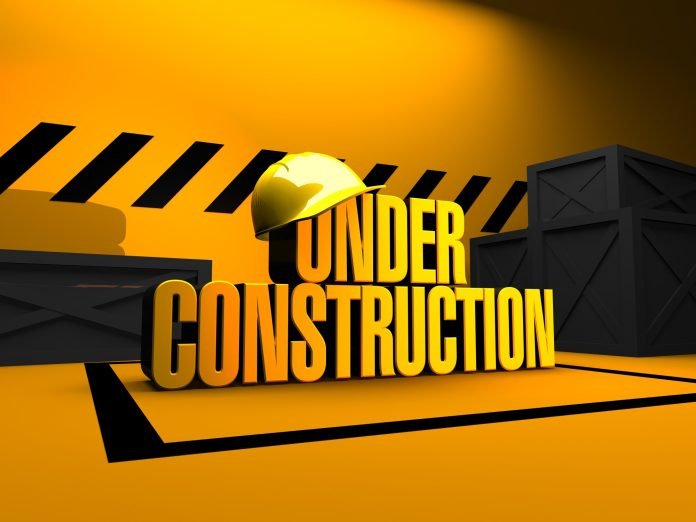Last Updated on February 11, 2025 by Bisma Sehar
Planning to build a home or a new building for your business? While it’s incredibly rewarding to see and experience the final product, it can be a very long and difficult process. In fact, it takes longer than seven months to build most custom houses.
There are many different phases of construction that take an idea on paper to a fully-built structure that you can live inside of. Each phase of the construction project is vital, and each will require the right mindset in order to handle it properly.
So what are these phases of construction project management that you need to be aware of ahead of time, so you aren’t frustrated with your contractor? Check out the various phases down below.
Table of Contents
The Planning Phase
Otherwise known as the pre-construction phase, there’s a lot that needs to happen before the first hammer is ever swung. This part takes a long time, but it ensures the construction project management portion of the project runs as smoothly as possible, to avoid costly mistakes.
Here are the various planning tasks to expect.
The Design Process
The first main process of the planning stage is to design the new building. The owner will hire an architectural firm to help put the ideas onto paper.
This process takes time, often stretching into months for custom projects. The architect is responsible for designing the building specification plans that a contractor can use to order materials and construct the project. They also work with an engineer to ensure that the building is up to code, safe, and follows best construction practices.
These plans are also used to get the project permitted by the city.
Contractor Bidding
Once you have plans, you can begin looking for a contractor to manage the actual project. You can open your project up to bids from different contractors, who can provide you with their estimated costs and timelines.
Once you choose a contractor, you can work with them to choose any subcontractors who will be a part of the project to help with various tasks.
Getting Permits and Materials
With plans and a contractor in place, you now need to secure permits before you can start building. Generally, the contractor can obtain all of the necessary permits. Though, in some instances, the owner can also get the necessary permits.
Execution Phase of Construction Project
With all of that taken care of, you and your contractor can finally head to the property to get started. Before the excavation begins the initial teams will use a underground service locator to ensure the ground is safe to dig and then begin delivering materials and preparing for full-blown construction. Then excavation begins, here are the different phases of construction execution.
Lay the Foundation
When you finally get to break the ground on your construction project, the first step is to literally break the ground. You need to prepare the land and lay the foundation before any of the exciting stuff happens.
If the dirt is already empty and level, this saves time. Otherwise, a land-clearing company may need to come in and remove trees, bushes, grass, and debris, and flatten the land to prepare for building.
Then, a groundworks construction team takes over. This team will excavate the land to ensure the foundation can be laid properly. Even if there isn’t a basement, the house still needs to start below the surface.
This is also when utilities get connected to the project, such as gas, plumbing, and electricity since these often run underground to connect to the main supply.
The Building Process
Once they lay the foundation, it’s time to start the actual building process. Your contractor will ensure that all the subcontractors know when they need to arrive and complete their portion of the project, from framers and roofers to plumbers and electricians, and everything in between.
Bit by bit, the project will start to take shape over the coming weeks and months.
Many times, certain teams have to wait for other teams to finish their job before they can get started. Other times, you’ll have various teams all working at the same time.
The process can seem chaotic, which is why it helps to have a general contractor managing the project, who has the experience needed to coordinate with many different people all at once.
Ongoing Inspections
Throughout the project, various inspections will take place to ensure everything is being completed up to code.
Your local inspector will arrive when notified and inspect aspects like plumbing, electricity, framing, and so forth before walls and flooring goes in and cover it all up. This may need to happen quite a few times before the project finishes.
Post-Construction Phase
Once the final nail is hammered in, and the last floorboard is laid, there are still a few final tasks that are yet to be completed. Here’s what you can expect to happen once the building is complete.
Mobile tower cranes are versatile, self-contained lifting solutions. Mounted on wheeled chassis, they offer flexibility in construction and industrial projects, efficiently lifting heavy loads while being easily transportable between job sites.
Site Clean Up
This process usually starts before the end of the project. But once things are wrapping up, heavy equipment is removed from the property. Rented tools and equipment get returned.
Construction cleaning crews are brought in to clean up the last of the dust and debris, and get the building ready for move-in. Final touchups are also made, in case things got messed up during the last few days as people are scrambling about.
Punchlist
Once complete, the contractor, project manager, engineer, and even the owner can tour the property together. They inspect everything and make a punch list of anything they find that needs to be completed or repaired.
The contractor then ensures these tasks are promptly taken care of.
Final Inspections and Documents
With that finished, the building may need one final inspection from the city. Otherwise, documents are finalized by each team involved, and the work is signed off. The owner is left with important paperwork that they will likely refer back to long into the future.
Surviving the Various Phases of Construction
For those unfamiliar with the construction industry, it can be tough to make it through the various phases of construction. Some seem to take so long and feel as though nothing is happening.
But that’s why it helps to choose the best possible contractor, who communicates constantly with you, always providing updates about the project.
With a good contractor or project manager, you can trust the work is getting done, without you having to constantly think about it.
Looking for more tips like this? Head over to our blog now to keep reading.
Apart from that if you want to know about Residential Painting Companies then please visit our Business category
















